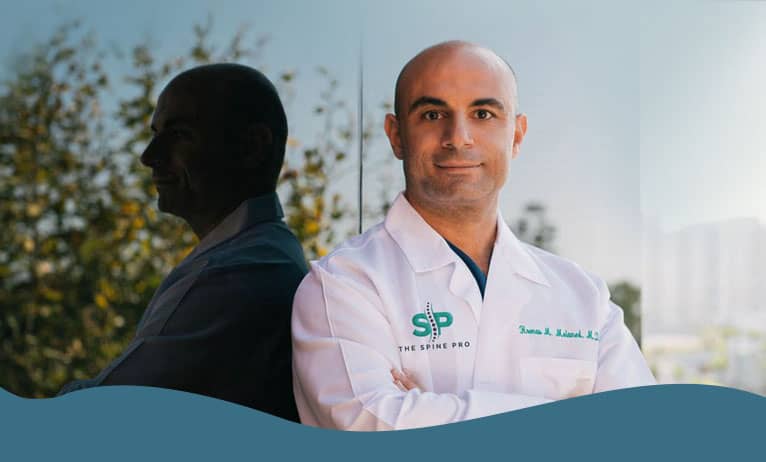Saying Goodbye to Lumbar Problems through Surgery
For countless men and women across the nation, ongoing back pain and lumbar problems are a factor of everyday life. While many of us try to take the best possible care of our bodies and maintain active lifestyles to improve spinal health, the day-to-day work routine and natural aging process tend to yield significant issues as time progresses. Whether they’re working in a blue-collar job that requires constant heavy lifting or slumped over a desk in an office environment, adults everywhere tend to accrue a great deal of wear and tear in their spine and cervical regions throughout the years.
Although the pain and discomfort we feel in our daily lives can be mitigated through proper exercise and health-conscious behaviors, orthopedic surgeons still find it necessary to perform back surgery for many men and women who live healthy lives yet still suffer from back pain on a near-constant basis. This is especially true for older adults who find that their damaged or deteriorating spinal and neck vertebrae are having a considerable impact on multiple aspects of their life. For the most severe cases, a number of us lose the ability to bend, walk, or sit for extended periods of time without shooting pain. In these unfortunate situations, cervical and lumbar spine surgery is often a sought-after solution.
Understanding Lumbar Surgery
Before consulting with a spine specialist regarding the possible need for back or neck surgery, it is important to understand the process itself. When orthopedic surgeons mention potential cervical or lumbar spine surgery, they are referring to an invasive procedure that targets the spinal discs in the neck or back and seeks to either remove or insert bone tissue as needed. The surgical process is performed in order to further provide stability to the spine or repair herniated discs that may be causing pain due to inflammation of the nerve system nearby.
The particulars of what occurs during cervical and lumbar spine surgery are different for each person. This is due to the fact that, depending on where pain is originating from and which sections of the spine are the source of those problems, each potential back surgery patient requires specialized attention to specific spinal regions. During consultation and examination, your spine specialist or orthopedic surgeon will discuss which vertebrae sections require attention.
How Does Back Surgery Help Me?
For men and women who are unable to escape the pain and various symptoms caused by degenerative disc disease and other sources of lower back pain, lumbar and cervical surgery procedures provide a solution for their symptoms. By repairing or removing damaged bone or soft tissue, back pain specialists are able to improve the health of the patient’s spine and its alignment. This results in a naturally-balanced and stable spinal column, which in itself allows for improved range of movement and a stronger back.
In addition to these benefits, the inflammation and pressure caused by herniated discs and other problems is undone. This means a considerable decrease in pain and discomfort due to reduced stress on nearby nerves. At the end of the surgery recovery period, many patients see a reduction of symptoms caused by years’ worth of spinal wear and tear.
Are there any Risks with Lumbar Spine Surgery?
As with any invasive surgical procedure, there are some risks present in the process. Although the presence of an experienced orthopedic surgeons does minimize these risks, it should be noted that complications may still occur during or as a result of surgery. Common risks include blood clotting or bleeding, as well as the potential for injury or infection of operated areas. All surgeries also carry with them the possibility for extended pain at surgical sites and a risk of lung or heart problems.
With these risks in mind, patients should be aware that problem factors will be minimized through the expertise of their surgical team. It is still important, however, to recognize that surgery of any sort will always be at risk for complications.
How Long Will I Need to Recover?
There are a number of variables that impact how long cervical and lumbar spine surgery patients will need to recover. These factors include the type of surgery performed in addition to how the patient’s body responds to the surgery. In many cases, surgical patients should expect to remain under professional care ranging from a few days to slightly over a week.
After being discharged, additional physical therapy will be required so as to build up patient strength and maximize surgery results. On the average, therapy appointments will be necessary anywhere from one month to six weeks following the day of surgery. Patients should expect complete recovery within three to four months in total.
Expert Back Pain Surgery Aid Where You Need It
At our Marina Del Rey facilities, we employ the most experienced, courteous spine specialists and orthopedic surgeons in California. If you are finding yourself in comfort pain due to back or neck problems, request an appointment with us today. We can consult with you regarding whether cervical or lumbar spine surgery should be recommended.





